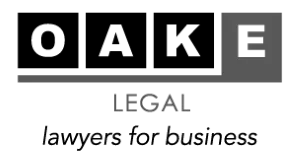Introduction
In 2016, President Muhammadu Buhari (the "President") inaugurated the Presidential Enabling Business Environment Council ("PEBEC") with the aim to actively "remove bureaucratic constraints to doing business in Nigeria, and make the country a progressively easier place to start and grow a business". Seven years later, on 14 February 2023, the President signed the Business Facilitation (Miscellaneous Provisions) Bill into law (the "Act") (also known as the "Omnibus Act"). The Act is a noteworthy step on the part of the President and what many describe as a 'legislative intervention' by the PEBEC, as it amends 21 (twenty-one) business-related laws of the country, including the Companies and Allied Matters Act 2020.
The enactment of the Act aims to and will foster a business enabling environment, especially for micro, small and medium-sized enterprises ("MSMEs") in Nigeria and its objectives1 are to (i) eliminate regulatory bottlenecks and amend relevant legislation to promote the ease of doing business in Nigeria; and (ii) institutionalise all the reforms to ease implementation.
This article focuses on the key changes of the Act with respect to the Companies and Allied Matters Act 2020 ("CAMA").
Changes to the operations of the Corporate Affairs Commission
The Director-General of the Corporate Affairs Commission ("CAC") is to ensure that all application processes from the start to completion with the CAC are fully automated and such automation is to be effected within 14 (fourteen) days of the commencement of the Act.2 This provision is expected to create a more seamless process of CAC's operations and more effective participation from both local and international business owners.
Consequential Amendments to CAMA
- Exemption of foreign companies: Foreign companies that intend to do business in Nigeria are now further protected by the inclusion that companies which have been exempted under any other extant Act of the National Assembly from registration in Nigeria are eligible to participate in business without registration. 3 This provision is an additional effort to make it easier for foreign companies which are protected and exempted from registration under any other law to establish operations in Nigeria which will in turn improve the economy and the ease of doing business in the country.
- Increase of share capital and authority to allot shares: The Board of Directors of a company can now increase the issued share capital by the allotment of new shares of such amount by passing a resolution of the Board to that effect, subject to the condition or direction that may be imposed in the Articles or by the company in a general meeting.4 This amendment enables the Board to act on the increase of issued share capital in cases when it is impracticable for the company to hold a general meeting of members.
- Pre-emptive rights of existing shareholders: Public companies are now excluded from the requirement to make a first offer of newly issued shares to all existing shareholders before issuing to the public or third parties by the inclusion of the word 'private' in front of 'company' n section 142(1) of CAMA. Shareholders are also now required to accept the offer for new shares within 21 (twenty-one) days of the notice, else the offer shall be deemed to have been declined.5
- Return of allotment: Return of allotment must now be filed with the CAC within 15 (fifteen) days as opposed to the previous position of one month. 6
- Independent directors: Public companies are required to have at least one-third of the total number of its directors as independent directors.7 Furthermore, one-third of the number of directors of a public company shall be nominated as independent directors.8
- Multiple directorship: Prior to the amendment, section 307(3) of CAMA provided that a person who is a director in more than five companies has to resign in all but five of these companies at the next annual general meeting of the companies and after the expiration of two years from the commencement of the CAMA. However, by virtue of the amendment of the Act, directors who hold multiple directorships may resign before the next annual general meeting, as the Act has included the phrase 'no later than' before the phrase 'next annual general meeting'. This means that directors who hold multiple directorship may do so at any time as long as it is before the next annual general meetings of the companies.
- Electronic voting, meetings, notices, certificates: The Act makes amendments across the CAMA to allow for the issue of electronic share certificates9 and certificates of transfer, 10 as well as allowing both private and public companies to hold general meetings electronically (subject to the company's Articles)11 and to share notices electronically.12 Electronic voting is also provided for by the amendment of the Act13 .
- Charges: Fixed charge now have priority over a floating charge and other debts including preferential debts.14
- Disqualification of directors: Removal of a director on the grounds of section 288 of CAMA must now be on grounds of fraud, dishonesty or unethical conduct.15
- Threshold for insolvency: Prior to the Act, a company is said to be insolvent when it has an outstanding debt of a sum that exceeds N200,000 (two hundred thousand Naira), and same has remained unpaid for a period of 3 (three) weeks. However, the Act amends the debt threshold and allows such to be determined by a regulation issued by the CAC. The Insolvency Regulations do not provide for such, thus the initial threshold of N200,000 still remains until a subsequent regulation is made.
- Definition of insolvency practitioner: Section 868 of CAMA is amended by deleting the definition of 'insolvency practitioner'. It is important to note that under CAMA, the Insolvency Regulations defined an insolvency practitioner as 'one or more persons duly accredited by the Commission to undertake insolvency proceedings' and further lists professional bodies (excluding members of the Business Recovery and Insolvency Practitioners Association of Nigeria ("BRIPAN")) which may apply to the Commission for accreditation as insolvency practitioners. This deletion aims to clarify the contradiction of the section with s.705 which recognized members of the BRIPAN as Insolvency Practitioners. With the deletion of the definition, restriction is removed members of relevant associations or bodies may now apply for accreditation as Insolvency Practitioners.
- Accounting standards for a company's financial statement: By virtue of the Act, a company's financial statement must comply only with the requirements of the accounting standards as prescribed by the Financial Reporting Council of Nigeria (FCRN)16 . This amendment eliminates the requirement to comply with the accounting standards set out in the First Schedule of CAMA.
Conclusion
The amendments made to the CAMA under the Act have been able to fill the lacuna created or otherwise left unfilled by the CAMA. The CAC will be left to pick up from where the Act left off through implementation and further regulation. The introduction of the Act, together with the import of its amendment to the CAMA, are laudable steps which will not only improve the ease of doing business for locals, but international investors. When placed side by side with the new Startup Act, it is evident that Nigeria is well poised for economic advancement in its business ecosystem. One can only hope that the provisions contained in the Act are strictly implemented and relevant stakeholders lend their support through compliance.
Footnotes
1. Business Facilitation Act, s.1
2. Business Facilitation Act, s.8
3. CAMA as amended, s. 78(3)
4. CAMA as amended, ss. 127 (1); 149(1)
5. CAMA as amended, s. 142(2)(c)
6. CAMA as amended s. 154 (1)
7. CAMA as amended, s.275(1). CAMA had previously required public companies to have at least 3 independent directors.
8. CAMA as amended, s.275(2)
9. CAMA as amended, s.171
10. CAMA as amended, s.181
11. CAMA as amended, s.240(2)
12. CAMA as amended, s.244(1)
13. CAMA as amended, s.248(1)
14. CAMA as amended, s.207(4)
15. CAMA as amended, s.283(c)
The content of this article is intended to provide a general guide to the subject matter. Specialist advice should be sought about your specific circumstances.


